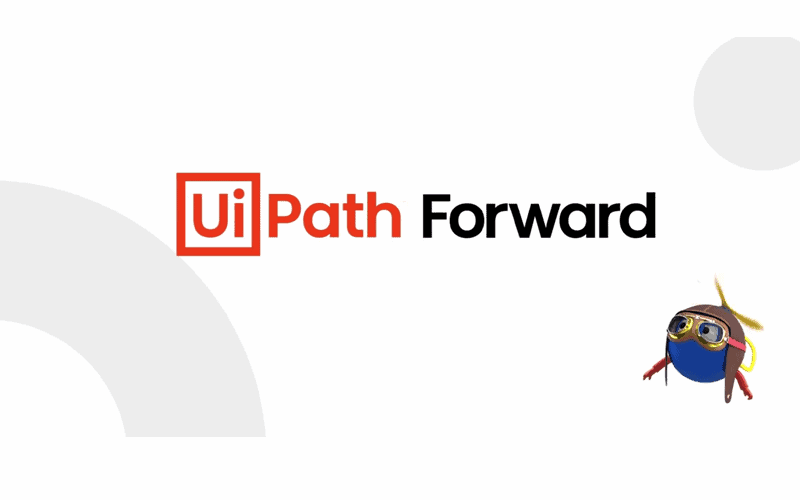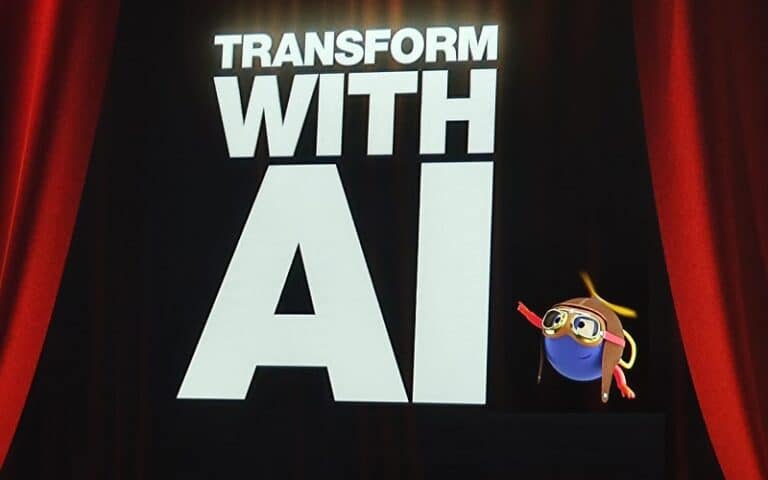UiPath Forward + TechEd 2024 saw the company detail work with Inflection AI – a company known for its intelligent Large Language Model (LLM) known as Pi – to integrate the UiPath Platform with the Inflection for Enterprise software toolset. The intention is to allow organisations to achieve operational efficiency and effectiveness with AI, without compromising trust and security options. The company also announced the integration of Anthropic’s Large Language Model (LLM), Claude 3.5 Sonnet with UiPath – and pointed to our agentic AI future with new developer builder tools.
As noted, Inflection AI develops LLMs and recently announced an enterprise-grade AI system designed to accelerate the adoption and impact of AI in large enterprises. Through its collaboration with Intel, Inflection says it intends to make UiPath available as an option to Intel’s Tiber AI Cloud service, using Intel’s new Gaudi 3 processors.
Intel Tiber AI Cloud
Intel Tiber AI Cloud offers various computing options to deploy AI workloads, including containers, virtual machines, and dedicated systems. The company says it reflects the increasing emphasis on production-scale AI deployments with more paying customers and AI partners while growing the user community of developers and open source partnerships.
“UiPath has a large customer base in regulated industries seeking to transform with AI while dramatically decreasing risks associated with public Large Language Models,” said Graham Sheldon, chief product officer at UiPath. “Our joint roadmap will bring Inflection AI integration within UiPath Autopilot and provide for built-in integrations that support the Inflection for Enterprise private cloud and appliance solution. The partnership with Inflection AI will provide an important private cloud alternative for agentic automation tailored to the industries with the most stringent security requirements.”
UiPath has also detailed news of its next phase of advanced AI solutions – agentic automation.
A combination of AI, automation and orchestration, agentic automation promises to harness the power of agentic and robotic technologies, extending the scope and impact of automation and turning insights into action to achieve tangible results quickly, securely, and with a high level of trust.
“As we bring Inflection AI to enterprises, we know that customers will need on-premises as well as cloud solutions. Through our partnership with Intel, we can offer UiPath customers the ability to keep all of their data on-premises while bringing the power of the Inflection AI system and agentic automation to their organization,” said Ted Shelton, COO of Inflection AI.
Inflection AI’s emotional Pi
Although Inflection AI has been through the wars a little with its ex-CEO Mustafa Suleyman jumping to Microsoft to now reside as Redmond’s CEO of AI, Pi has gained some respect as a kind of ‘emotional AI’ services that is supposed to be kind and supportive with a natural flowing style that offers ‘friendly’ advice.
As reported on Techzine here, “Several months ago, Microsoft bought up pretty much the entire contents of Inflection AI during a so-called acqui-hire, which does not involve an official acquisition but does involve buying out key personnel. The tech giant also paid 620 million dollars for licensing the company’s software and LLMs. Microsoft also paid 30 million dollars to settle all the legal ramifications involved in the unofficial takeover.”
According to Inflection AI, while Pi was originally envisioned as a personal AI, it’s become increasingly apparent to current CEO Sean White and team that people are finding the most value in using Pi to help them in their work. In the billions of conversations users have had with Pi, White says the development unit has seen countless career questions answered, productivity tips shared and vocabularies expanded with Pi’s word of the day. That’s all now one step closer to the UiPath motherlode.
Anthropic Claude
As part of the main UiPath news stream this event, attendees were also updated on the integration of Anthropic’s Large Language Model (LLM), Claude 3.5 Sonnet with UiPath. The intention here is to deliver new AI features in three key products, including UiPath Autopilot for everyone, Clipboard AI (a standalone application which helps in data entry, acting as an intelligent copy-paste assistant) and a new medical record summarization solution.
UiPath Autopilot is an AI companion designed to streamline daily work tasks. It combines Anthropic Claude 3.5 Sonnet, UiPath Document Understanding and UiPath Context Grounding to provide instant, accurate answers to business questions by accessing trusted enterprise knowledge for a diverse set of use cases and can drive actions across various systems through UiPath automations.
It also enables users to discover, run and combine existing company automations to complete complex tasks. UiPath Autopilot also ‘automates digital paper’ by extracting information from digital documents and using Clipboard AI technology to paste within enterprise applications. Lastly (for now), it also allows users to create new automations using API and UI automation to update line of business systems and to automate more work under human supervision.
“AI is fundamentally changing and improving how businesses work, and how professionals make decisions. It’s not just about saving time on mundane tasks – it’s about freeing people up to do more meaningful work,” said Mike Krieger, chief product officer at Anthropic. “Claude will deliver even greater customer value by streamlining daily tasks with Autopilot, automating data entry with Clipboard AI and improving medical record analysis in healthcare – enabling faster, more accurate, and more intelligent automation across diverse business processes.”
Current examples of healthcare services and disaster relief implementations see organisations use these software tools to onboard blood donors.
“Our collaboration with Anthropic emphasizes our commitment to help our customers leverage best-in-class LLMs and specialized AI within the UiPath Platform to tackle complex automations – ensuring accurate and trusted results every step of the way,” said Graham Sheldon, chief product officer at UiPath. “By incorporating Anthropic Claude 3.5 Sonnet in the UiPath Platform, our users can deliver real business results with our most innovative experiences like Autopilot and Clipboard AI.”
Your next AI is agentic
Much of the rest of the conversation at UiPath Forward + TechEd 2024 (and indeed the central focus of CEO and founder Daniel Dines’ keynote) gravitated around agentic AI, which has fast emerged in the latter part of this year as the ‘must have’ (or at least must talk about) AI topic that every vendor wants to get some of the landgrab on. Much like Retrieval Augmented Generated (RAG)-related proprietary data validation systems were 18-months ago, if your AI isn’t agentic then you don’t have skin in the game.
UiPath defines agentic AI is an amalgam and combination of various AI techniques being brought together so it is a combination of models and approaches used to create autonomous agents that analyse data, set goals and take action with minimal human supervision and near-human cognition and continuous learning.
According to UiPath’s blog, “Agentic AI achieves this level of cognition by employing a combination of advanced AI techniques, including LLMs, machine learning algorithms, deep learning and reinforcement learning. For example, LLMs, like those that power OpenAI’s ChatGPT, Google Gemini and Meta Llama, are employed to allow autonomous systems to understand and respond to natural language commands. Machine learning algorithms enable these systems to analyse data and identify patterns. Reinforcement learning techniques allow them to learn from their actions and improve their decision-making over time.”
Next, after we embrace all of these concepts, we will need a way for developers to build agentic AI functions and make that process as compartmentalised, efficient and automated (with abstractions and accelerators to speed the process) and UiPath has eyes on that too with products coming next year. Overall, have we moved on from talk of robots and RPA? Thankfully not, UiPath still appears to know where its roots are.

